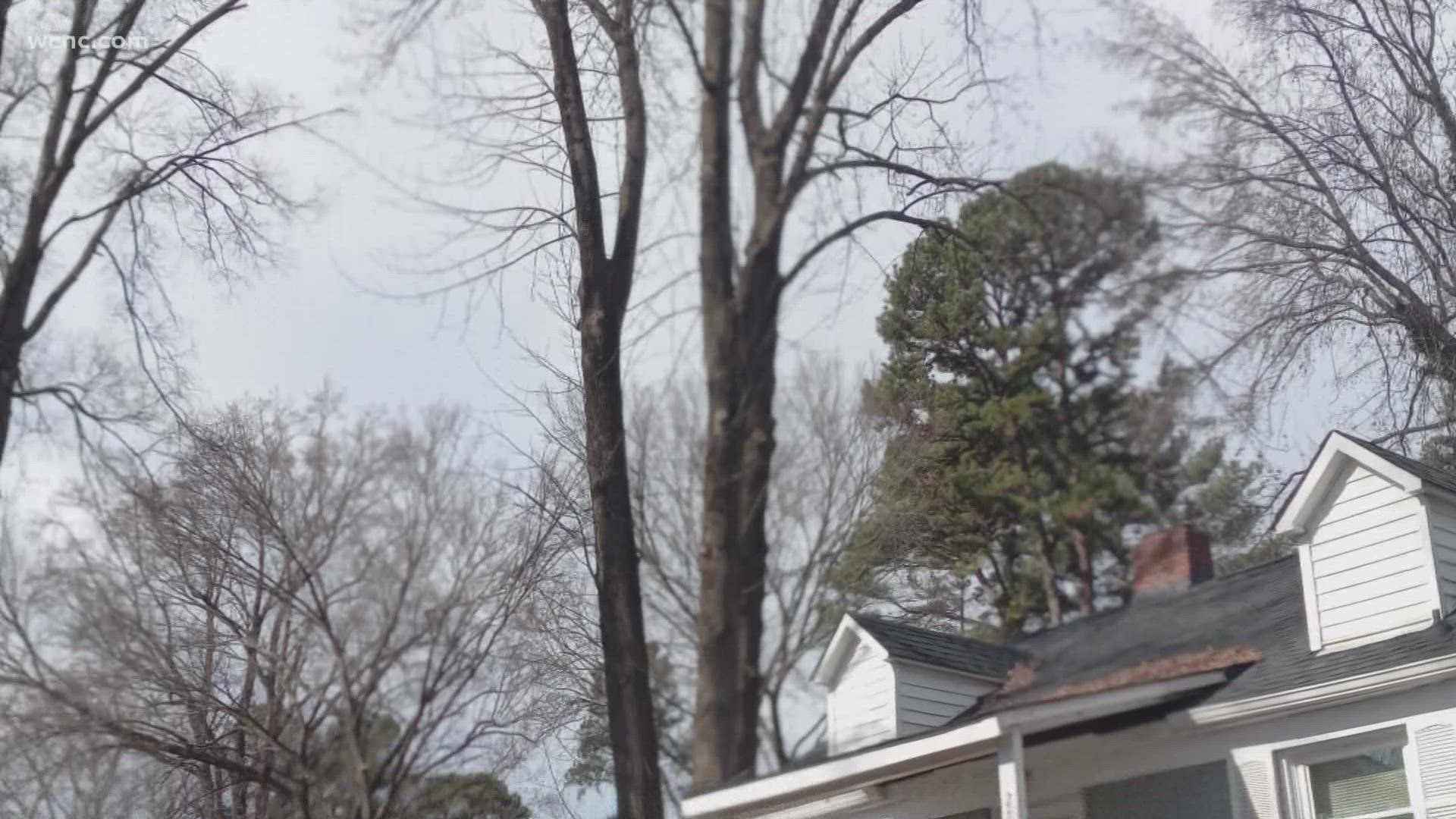CHARLOTTE, N.C. — A viewer sent us a letter with pictures of holes in her roof, and she says they were caused by loose limbs falling from the tree next door.
Holes in the roof so deep, with all the snow, rain and ice we've been getting... this homeowner was bound to see some water damage sooner or later.
What's worse, she says she's already been through this before, four years ago.
She says it's all from the skyscraper of a tree next door losing its limbs with such force.
We went to Charlotte Attorney Gary Mauney and asked who's responsible.
"I would say that it's one of these things where it's a cost of owning your own home and keeping everything maintained," Mauney said.
The woman says the property owner next door, who also manages dozens of other properties, told her he doesn't have to trim back his trees.
And he may be right.
"If it's over the property line, regardless of the state of the tree, you could trim it back," Mauney explained. "But it matters if you're proving negligence against someone, then one of the ways that it would help you to prove that, of course, is if you could show that they knew that the tree was rotten or infirm, or that there was something wrong with the tree."
According to the Insurance Information Institute, in some situations where the felled tree was located on a neighbor’s property, your insurance company may try to collect from the neighbor’s insurance company in a process called subrogation. If this happens and your insurer is successful, you may be reimbursed for your deductible.
State Farm Insurance sent us a statement on this very circumstance:
"In most jurisdictions, if the tree causing the damage is healthy the owner of the damaged property submits the claim to his or her insurance.
If a customer feels a neighbor's tree poses a threat to their property, from deteriorating tree health or other similar concerns, they are encouraged to share their concerns with their neighbor."
"So the insurance company would be standing in the shoes of the landowner and could then turn around and sue the next-door neighbor with a tree and say, 'hey, we've had to pay to have this tree fixed. and we think you should have had to take care of that,' and sue them in court on their own," Mauney said.
Contact Jane Monreal at jmonreal@wcnc.com and follow her on Facebook, Twitter and Instagram.

